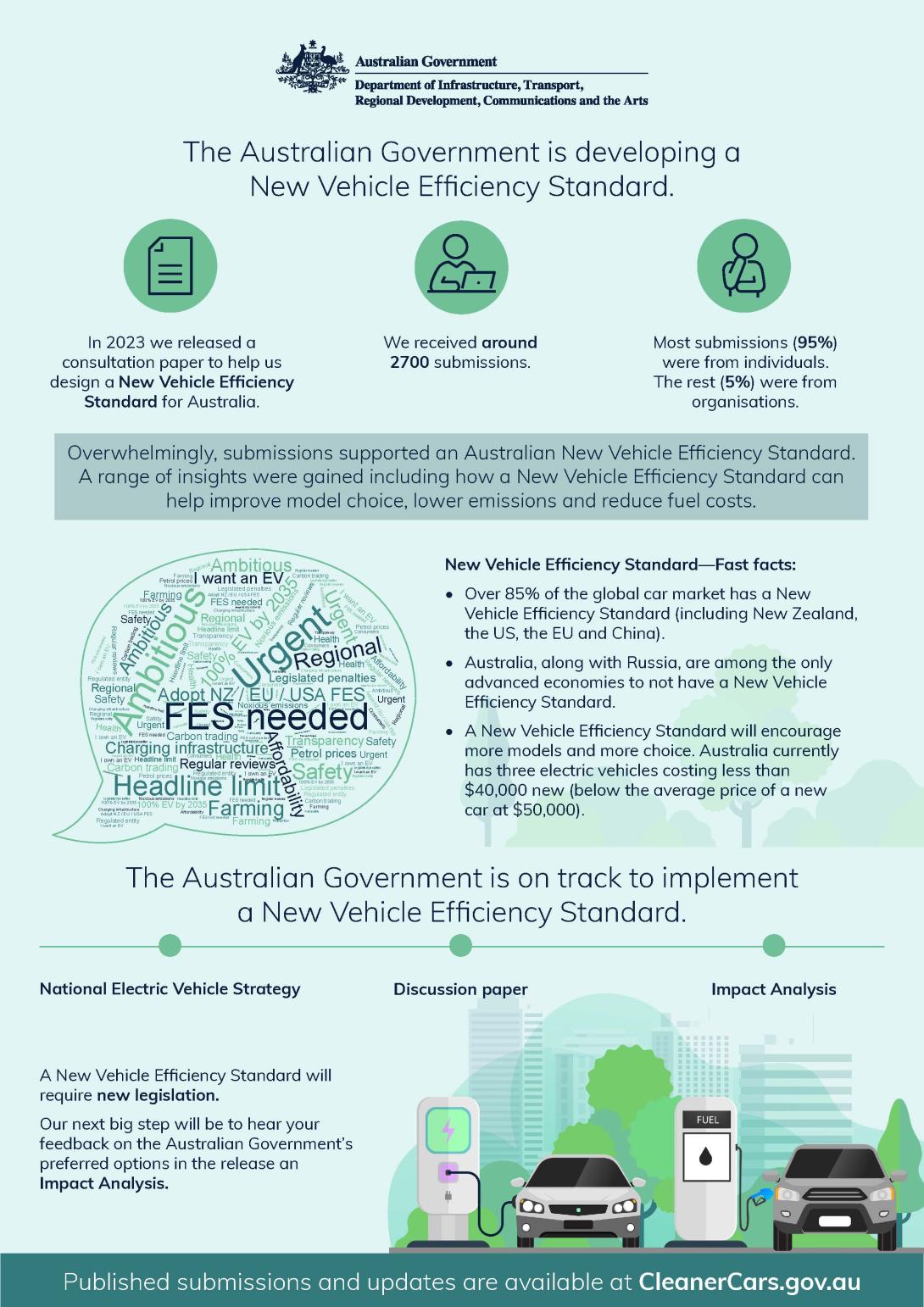In April 2023, the Australian Government sought feedback from the community on the design of a New Vehicle Efficiency Standard (also known as a fuel efficiency standard), that will reduce carbon emissions, save Australians money on fuel and see cleaner cars on the road. It aims to achieve this by providing global vehicle manufacturers with the right incentives to send cleaner vehicles to Australia.
Why we want your input
Your input to our first consultation helped to inform the design of a New Vehicle Efficiency Standard to provide global vehicle manufacturers with the right incentives to send cleaner vehicles to Australia.How you can voice your opinion
We have listened to the Australian community. In April and May 2023, we received around 2,700 submissions on the design of an Australian New Vehicle Efficiency Standard. Further consultation is now underway.What will be the outcome of this consultation?
Your submission to our initial consultation has helped inform the Government's approach to an Australian New Vehicle Efficiency Standard and support our achievement of net zero by 2050.The Issue
The transport sector makes up 21% of Australia's emissions, and is projected to be the largest source of emissions by 2030 if we do nothing. On average, passenger cars in Australia emit 20% more than the United States.
Australia is one of few remining advanced economies without a New Vehicle Efficiency Standard. Australians are getting left behind as the world moves to cleaner, modern cars and are paying more at the bowser as a result. Over 85% of cars sold worldwide are covered by a New Vehicle Efficiency Standard.
The outcome of our first consultation (April 2023)
In April 2023, the Government released a consultation paper which canvassed views on the guiding principles and design of the standard – both the general policy and the technical aspects. We sought the views of all interested Australians, and we received around 2,700 submissions hearing from the the light vehicle industry, climate groups, the energy and petroleum sector and a range of peak bodies, as well as businesses and individuals.
Overwhelmingly, these submissions supported an Australian New Vehicle Efficiency Standard. From this consultation, we heard from stakeholders on how a New Vehicle Efficiency Standard could help improve car model choice, lower emissions and reduce fuel costs. Submissions held differing views on timing, stringency and technical requirements of the proposed standard.

You can view the public submissions from this consultation below.
Publication of submissions
As part of the consultation process, individuals and organisations who lodged a submission were asked to nominate whether they would like their submission to be published by the department, or whether they would like to keep their submission private. Where a submission did not indicate a privacy preference, the highest privacy setting was applied to protect the privacy of the individual. Because of these privacy settings and individual preferences, not all submissions were published.
- Public submissions provided as a document, were published as a document.
- Public submissions that contained multiple submissions in one document, were published as one document.
- Public submissions provided as text in the body of an email, were consolidated for ease of community reference into one document.